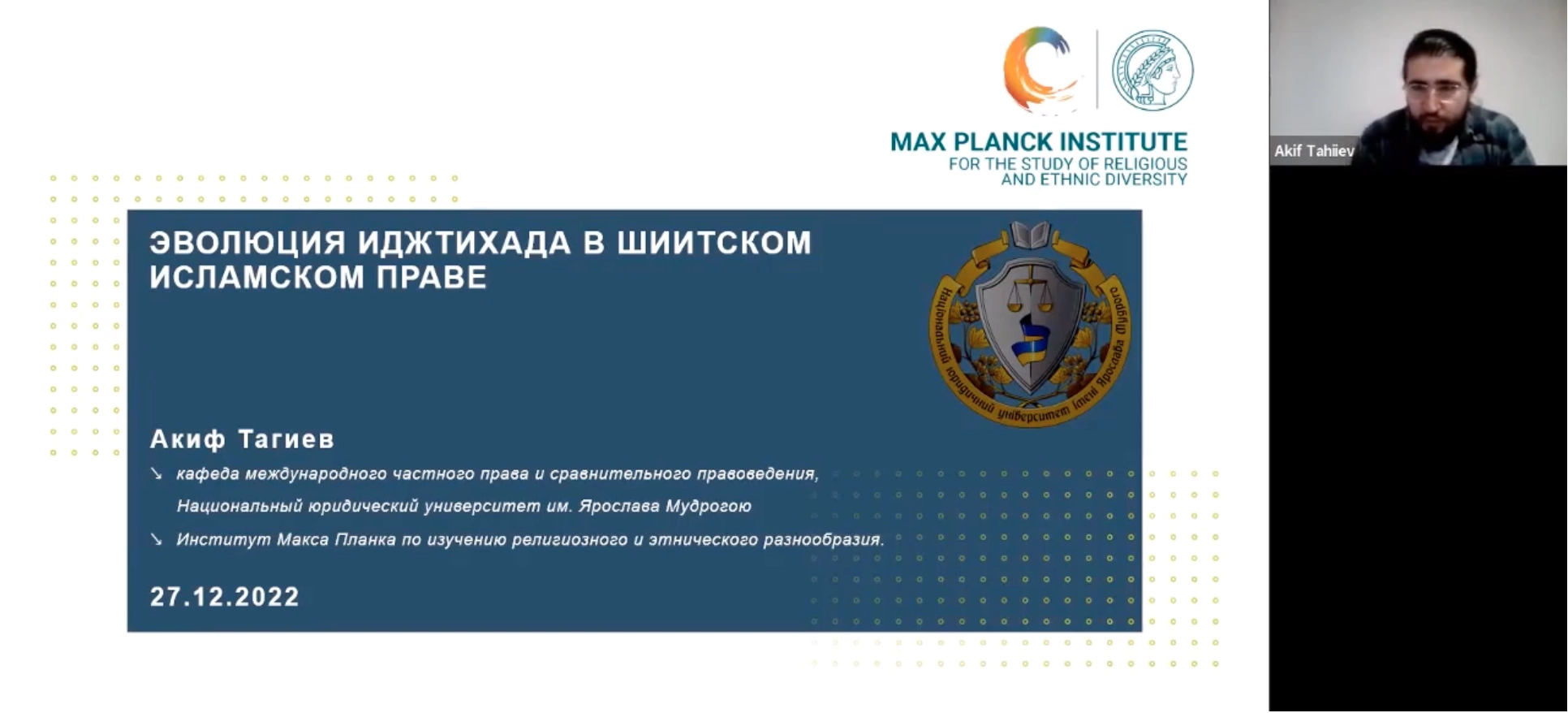The next lecture in the IIIT lectures series for CIS countries was delivered by Akif Tagiev, PhD, researcher and lecturer at the Department of Private International Law and Comparative Law at the Yaroslav the Wise National Law University (Kharkiv, Ukraine) and visiting scholar at the Max Planck Institute (Goettingen, Germany) on "The Evolution of Ijtihad in Shiite Islamic Law".
During his lecture, Dr Akif Tagiev spoke about the concept of ijtihad and taklid in Shiite Islam, the emergence of ijtihad and its history in Shiite law, the periodisation of the development of Shiite legal doctrine in the Jafarist madhhab, the Usuli-Ahbarite confrontation, and the formation of Shi'a legal doctrine.
The concept of ijtihad has come a long way in Shiite legal doctrine from its complete rejection in the Sunni interpretation to its transformation and acceptance by the majority of the living Shiite faqih.
Wazl Hallak Ijtihad is a legal method of interpretation and reasoning by which a mujtahid obtains or rationalises law based on the Quran, Sunnah and/or ijma.
In Sunni legal doctrine, there was a "closing of the gates of ijtihad" in the 10th and 11th centuries, although some Sunni jurists of different times called for their opening In Shiite legal doctrine, the "gates of ijtihad" are always open. But also, within the Jafarite madhhab there is a strand of Ahbarites who generally reject the concept of ijtihad.
Lecture
About 40 participants from Ukraine, Poland, Germany and Kyrgyzstan registered for the lecture.
A recording of the lecture is available on the Institute Of Knowledge Integration's YouTube channel https://www.youtube.com/watch?v=CBdRVa2p2Oc









